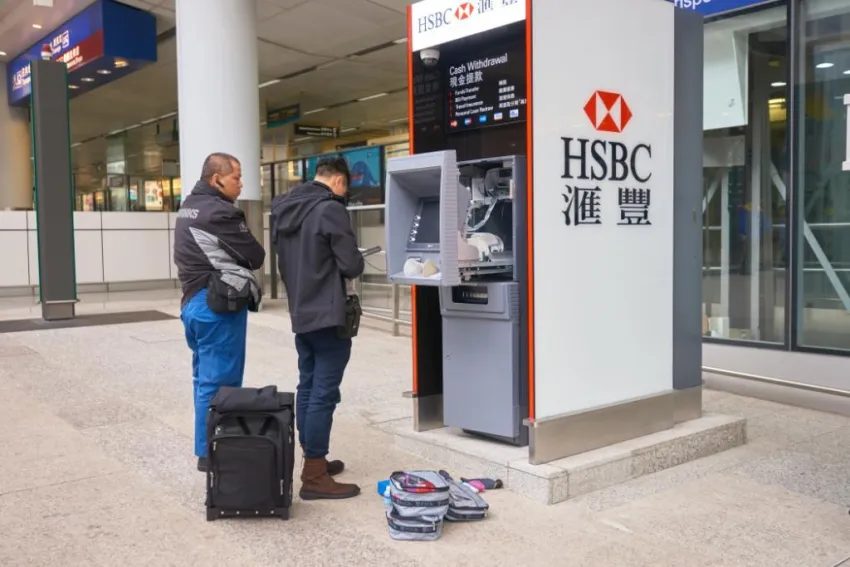
Hong Kong banks' risks from property exposure still "manageable": Fitch
Mortgage loans of Hong Kong banks only totalled US$144b in 2016.
Hong Kong banks have relatively small direct exposure to the domestic residential mortgage market, which Fitch Ratings views as a much less significant risk to asset quality than exposure to mainland China.
Some borrowers have taken additional mortgages from finance companies, which increases their debt burden, lowers the transparency of the property market, and reduces the effectiveness of macro-prudential bank regulations. However, Fitch expects the overall quality of banks' mortgages to remain benign and spill-over risks from property exposure to be manageable, even in the face of interest-rate increases or a potential correction in house prices.
Here's more from Fitch:
The outstanding residential mortgage loans of Hong Kong banks totalled HKD1,119bn (USD144bn) at end-2016. This was equivalent to just 5% of system assets, which is low by international standards. For example, residential mortgages account for around 11% of system assets in Singapore, and for 43% in Australia.
Residential mortgage lending is also dwarfed by Hong Kong banks' exposure to mainland China, which totalled USD797bn in 3Q16. The claims on mainland China of HSBC alone are worth more than all of Hong Kong banks' mortgage lending.
Banks are protected against property-price shocks by the tight regulatory stance on the property market, which is a key positive rating factor. The authorities have focused on curbing both traditional and speculative demand in the housing market, with prudential measures centring on caps on loan-to-value ratios (LTVs) and debt-servicing ratios (DSRs) as well as stamp duty measures.
The average LTV and DSR for new residential mortgages have steadily declined since 2009. Fitch estimates that the average LTV for the mortgage loan book as a whole is only 30%-40%.
Banks have also been conducting stress tests of 300bp in interest-rate hikes for all new loans since 2013 - and 200bp since 2010. Most borrowers should therefore have sufficient capacity to meet their debt obligations, even if the US Fed tightens more aggressively than we expect.
However, prudential measures apply only to entities under the Hong Kong Monetary Authority's (HKMA) supervision, and reported indicators focus on new first mortgages provided by banks.
Fitch believes that spill-over risks to the banking system from borrowers taking second mortgages on single properties are rising - though not yet significant. Second-mortgage borrowers often have weaker repayment capacity and bear higher interest rates, which makes them more vulnerable to rate increases. These loans are generally provided by unregulated entities, often without the consent or knowledge of the bank that provided the original mortgage.
The HKMA is introducing a system this quarter that notifies banks when borrowers re-mortgage their property. It should help banks to monitor changes to borrowers' delinquency risk, collateralisation and repayment capacity. HKMA data suggests that loans under co-financing mortgage schemes, though increasing, still represented only around 1% of banks' outstanding mortgage loans in 2Q16.
Asset quality of property-related loans could be tested over the next couple of years. The interest-rate hikes that we expect in the US would push up rates in Hong Kong, owing to the currency peg against the US dollar. Moreover, Fitch believes price corrections in the housing market are plausible, as property values have effectively doubled since 2010.
Other property-related claims of Hong Kong banks include commercial real estate loans - which represent 6% of system assets, compared with 17% in Singapore and 6% in Australia - loans to finance companies (3%) and personal loans (2%).






![Lorem Ipsum [ABF 1]](https://cmg-qa.s3.ap-southeast-1.amazonaws.com/s3fs-public/styles/exclusive_featured_article/public/2025-03/a_hand_pointing_to_a_futuristic_technology_5b87c9d0e3_1.png.webp?itok=2w0y1WhS)


![Cross Domain [Manu + SBR + ABF + ABR + FMCG + HBR + ]](https://cmg-qa.s3.ap-southeast-1.amazonaws.com/s3fs-public/styles/exclusive_featured_article/public/2025-01/earth-3537401_1920_4.jpg.webp?itok=WaRpTJwE)








 Advertise
Advertise

